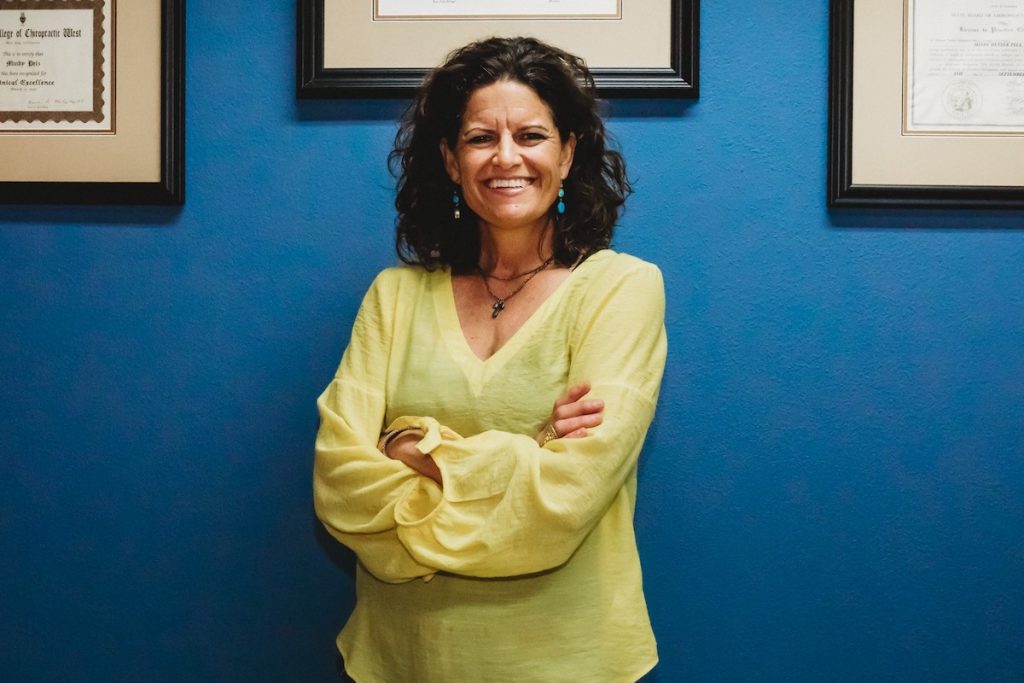We’re talking about menopause, and so are women in increasing numbers – and not a moment too soon. But with one billion women projected to experience menopause by 2025, why is there still so much mystery around it?
Considered one of the last frontiers of feminism and women’s health, it’s long been under-studied, under-funded, and shrouded in shame and secrecy. The term “menopause” wasn’t even used until around 1820, when it was coined by Charles de Gardanne, a French physician. Before then, it was charmingly referred to as “women’s hell”, “green old age” and “death of sex”, notes Susan Mattern, a professor of history at the University of Georgia.
Like what you’re reading? SIGN UP to The Suite – it’s the modern mini-magazine for women in leadership.
These days, it’s more delicately described as “the change”, but the symptoms are no less subtle. In fact, there are 34 of them to keep an eye out for when you hit peri-menopause. Yes, 34. We’ve got “the core four” of course – hot flushes, sleep disruption, vaginal dryness, and depression – and then periods may get shorter, or longer, or heavier, or lighter, or could become wildly unpredictable. There could be brain fog. Or moodiness. Anxiety. Burning mouth. Electric shots. Frizzy hair. Brittle nails. Gum problems. When you finally reach menopause (a full year without a period), symptoms can last for a decade or more, and at least one symptom may never get better.
It’s no wonder “menopause is like being sent on a canoe trip with no guidebook and only a vague idea where you are heading – although the expectation is it’s awful”, writes Dr Jen Gunter, gynaecologist and author of The Menopause Manifesto. Gunter says she wrote the book because so many women nearing or going through menopause were asking her, “What do I do?” and “Where do I turn?”.
Dr Joanna Sharp, a specialist General Practitioner who consults for online menopause clinic My Juniper, would agree: “There’s still so much shame around being a woman in midlife, and it comes from what is really a patriarchal construct that we’re no longer useful. Even the word ‘menopause’ means the end of your menses, or periods, and therefore your fertility. You’re now in this non-fertile chapter of your life and you’re therefore no longer useful to society.”
“But we know this is not true. We’re incredibly useful to society, we’ve worked very hard all our lives, we have thriving careers and families and now have more money than we’ve ever had. We are a big economic driver. Over the last five years, menopause has definitely been talked about more, and it’s driven by Generation X who are more vocal and who want to get these things out in the public domain. Women who understand there’s a lot to be said by not always being framed by youth and beauty.”

The Business Of Menopause
Those vocal Gen-Xers include the women who have made talking about menopause their business – quite literally. Gwyneth Paltrow, Naomi Watts, Davina McCall, Trinny Woodall and Stacy London, to name a few, have put their money where their mouths are, investing their time, energy and dollars in creating awareness and/or products around menopause.
Paltrow has been on something of a crusade for the past few years to “make menopause cool” and has been very open about the effect of perimenopause on her hormones. Watts wants to “conquer the stigma” around menopause and recently launched her new brand, Stripes, with products ranging from a probiotic supplement to a scalp serum. She’s called it “a one-stop shop for all the things that are going to come up at this point in your life, so you won’t have to go one place for your hair stuff and another for your vaginal support”.
McCall has written a book and made a documentary about the subject, Woodall (thankfully) never stops talking about it, and London, former host of What Not To Wear, is the founder and CEO of State of Menopause, a holistic product line for women that addresses the symptoms associated with “the change”. London has taken things one step further with the first Menopause CEO summit in New York City today, to mark World Menopause Day.
How To Treat Symptoms
The menopause market is estimated to be worth a potential US$600 billion, and a cursory Google search yields many different brands – so many! – touting everything from herbal remedies to temperature regulating sleepwear to lotions targeting skin both above and (well) below the neck. So, what’s the best decision for you?
“We know that for a woman going through perimenopause and menopause with severe symptoms, the best treatment is estrogen,” explains Dr Sharp. “There’s certainly a category of women who can’t have it, but actually when you narrow it down, it’s not a huge number. If you’ve had breast cancer before, you’ve had significant blood clotting concerns, spontaneous blood clots, active liver disease, or uncontrolled blood pressure, then estrogen is not for you.”
“We also need to look at their other risk factors, like weight, and we need to be cautious with how we give the estrogen to women whose BMI is over 35. Also, women who haven’t had a hysterectomy need to have progesterone, to oppose the estrogen and the impact that it has on the lining of the uterus. However, for the many women who have those really difficult symptoms, oestrogen can be life-changing.”
Menopause isn’t something you have to “put up with”, learn to “grin and bear” or – according to a piece written in a major medical journal – “grit your teeth, and it’s over in six months”. The fact is, the menopausal transition (that is, from fertile to post-menopause) can take up to four years, while the symptoms of menopause can often continue for a decade.

An Opportunity For A Full Health Check
What’s more, as benign as some of the symptoms may seem – oh hi, frizzy hair, where the hell did you come from?! – it should be taken seriously. New research suggests menopause itself increases the risk of heart disease, which is the No. 1 killer of women.
“It’s a really good time for women to stop and take stock of their whole health, looking at cardiovascular risk factors, family history, cholesterol, blood pressure and weight, treating all of those various risk factors, and also treating the symptoms,” says Dr Sharp. “That way, you’re getting better quality sleep, which will often flow through to better mood, better libido, better relationships, less stress, and all these things will impact your general health.”
Certain lifestyle and diet changes made prior to the onset of menopause can also help to ensure that you are ready for it when it arrives. Your attitude towards it can also have a tremendous impact on your experience. Interestingly, studies have shown that negative beliefs held prior to menopause are thought to precede a more difficult experience. For instance, research suggests the more catastrophic your thoughts about hot flashes and night sweats are, the more intense they will ultimately be. While depression during menopause is not uncommon, women who try and change their mindset ahead of time say it can help hugely – even in the face of difficult symptoms.
Perhaps it’s about time, as Gwyneth Paltrow so perfectly put it; “We need to stop thinking about it as the end of something and more of the beginning of another chapter.”
SIGN UP now to The Suite – the free and fortnightly magazine-style newsletter for women – and make your inbox instantly and infinitely better.




